
-
Find the right food for your petTake this quiz to see which food may be the best for your furry friend.Find the right food for your petTake this quiz to see which food may be the best for your furry friend.Featured productsAdult Dog Food
Hill's Science Plan Adult Multipack Wet Dog Food with Chicken, Beef & Turkey are complete premium pet foods for adult dogs from 1 year. Your dog will love these deliciously smooth and savoury minced loaves, formulated for balanced nutrition and overall health.
Shop Nowwith Chicken, with BeefHill's Science Plan Mature Adult Multipack Wet Dog Food with Chicken & Beef are complete premium pet foods for mature adult dogs from 7 years. Your dog will love these deliciously smooth and savoury minced loaves, formulated to deliver the appropriate amount of energy to support the needs of adult dogs.
Shop Nowwith Chicken, with BeefHill's Science Plan Puppy Multipack Wet Dog Food with Chicken & Beef are complete premium pet foods for growing puppies from weaning until 1 year old and for pregnant and nursing dogs. Your puppy will love these deliciously smooth and savoury minced loaves, formulated for balanced nutrition and overall health.
Shop NowFeatured products Hairball & Perfect Coat Adult Dry Cat Food with Chicken
Hairball & Perfect Coat Adult Dry Cat Food with ChickenHill's Science Plan Hairball & Perfect Coat Adult Cat Food with Chicken is formulated to effectively help avoid hairball formation in adult cats while promoting a beautiful coat. Thanks to its mix of essential omega-6 fatty acids, this food benefits the cat's skin and fur, keeping them healthy and shiny. Our Advanced Fibre Technology helps reduce hairballs by naturally promoting their passage through the gut. This food is formulated with high-quality protein for a perfectly balanced, great-tasting recipe.
Shop Now Sterilised Adult Cat Food
Sterilised Adult Cat FoodHill's Science Plan Adult Sterilised Cat Dry Food with Salmon is specially formulated with ActivBiome+ Multi-Benefit Technology. It is a precisely balanced nutrition, tailored to meet the needs of sterilised cats, to help keep them lean & healthy.
Shop Now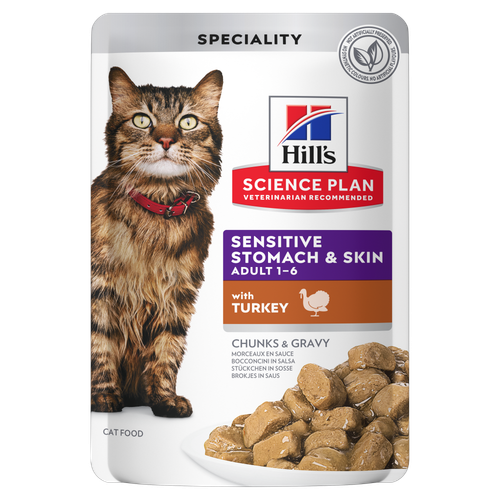 Sensitive Stomach & Skin Adult Cat Food
Sensitive Stomach & Skin Adult Cat FoodHill's Science Plan Adult Sensitive Stomach & Skin Cat Premium Chunks in Sauce with Turkey is a complete pet food for adult cats aged 1-6 years
Shop Now -
Dog
- Dog Tips & Articles
-
Health Category
- Weight
- Food & Environmental Sensitivities
- Urinary
- Digestive
- Joint
- Kidney
-
Life Stage
- Puppy Nutrition
- Adult Nutrition
- Senior Nutrition
Cat- Cat Tips & Articles
-
Health Category
- Weight
- Skin & Food Sensitivities
- Urinary
- Digestive
- Kidney
-
Life Stage
- Kitten Nutrition
- Adult Nutrition
Featured articles The Right Diet For Your Pet
The Right Diet For Your PetIn people, the right diet is very important. If you are eating the wrong way for your metabolism, activity level, age and lifestyle you could end up with health issues.
Read More Show some love with wet foods: a great choice for pets with health issues
Show some love with wet foods: a great choice for pets with health issuesShow some love with wet foods: a great choice for pets with health issues.
Read More The Incredible Science Behind Your Pet's Microbiome
The Incredible Science Behind Your Pet's MicrobiomeLearn what your pet's microbiome is, how it contributes to your pet's gut and overall health, and why nutrition is important in maintaining healthy microbiomes.
Read More -


Before we think about the best dog food for small breed dogs, what do we mean by a small breed? Small breed dogs are generally those that will weigh no more than 12-15kg when they are adult dogs. Examples would be Jack Russel terriers, Yorkshire terriers, Lhasa apso and cocker spaniels. We also sometimes call the smaller of the small breeds miniature or toy breeds, such as the Chihuahua and Pomeranian.
When it comes to nutrition, all these dogs can be considered part of the same group: small and mini. But surely dogs are dogs, you might say. Why feed them differently? Well, when you think about the difference in size, weight, metabolism and lifespan of an Irish wolfhound, say, compared to one the mini breeds we mentioned, there are bound to be some differences.
Major differences between small and mini dogs and larger breeds
Longer average lifespan. In general, smaller dogs tend to live longer lives than larger ones. Because of this, they benefit from higher levels of antioxidants to help fight wear and tear and cell ageing.
Faster metabolisms. Smaller dogs have a higher metabolic rate than larger dogs. They lose heat more quickly and they burn more calories per kilo of body weight. This means they sometimes struggle to keep weight on.
They may be more easily stressed than bigger breeds of dog. You can imagine that if you’re very small, the world, the animals, and the humans that live in it can be a little overwhelming.
Growth and nutrient requirements. Large and giant breed dogs need to grow and mature more slowly than small breed dogs. Because of this, the two groups need slightly different mineral balances to get their skeleton and muscles to grow healthily and then stay on top form.


Tasty Tips
Small mouths. It may seem obvious, but some small dogs have tiny mouths and they simply need different sizes of kibble from their larger counterparts.
What is the best food for a small or mini dog?
There is no one answer to this because it will depend on your dog’s tastes and whether you prefer to feed wet food, dry, or a combination of the two. The one thing your small dog’s food must be, though, is complete and balanced. This means it has all the nutrients, in the right proportions, for your dog’s life stage. If you like to feed a combination of wet and dry, which lots of small breed dogs love, just make sure that both formulations are complete and balanced, and then you can feed any proportion of the two you like.
Because of their higher energy needs and smaller teeth, talk to your vet about what options might be suitable for your individual dog and how much to feed. It’s really important to keep dogs slim throughout life, but you may find that several small meals a day suits your small dog better than one or two big ones, and helps them maintain their weight.
As we said, smaller dogs might tend to be a bit more stressed. Right from the word go, talk to your vet or nursing team about how to choose a calmer, well-adjusted puppy in the first place and how to socialise and habituate them to the big, wide world around them. This needs to be done in a positive and patient way. If you do end up with a dog that finds life a bit stressful, there are also foods available for small breed dogs that have natural ingredients proven to reduce anxiety and help with signs of stress. Feeding the right food and keeping your dog slim will set you both up for a long and beautiful friendship.
Reviewed by Dr. Hein Meyer, DVM, PhD, Dipl-ECVIM-CA


One of our staff authors prepared this article for you
Related products
Hill's Science Plan Puppy Multipack Wet Dog Food with Chicken & Beef are complete premium pet foods for growing puppies from weaning until 1 year old and for pregnant and nursing dogs. Your puppy will love these deliciously smooth and savoury minced loaves, formulated for balanced nutrition and overall health.
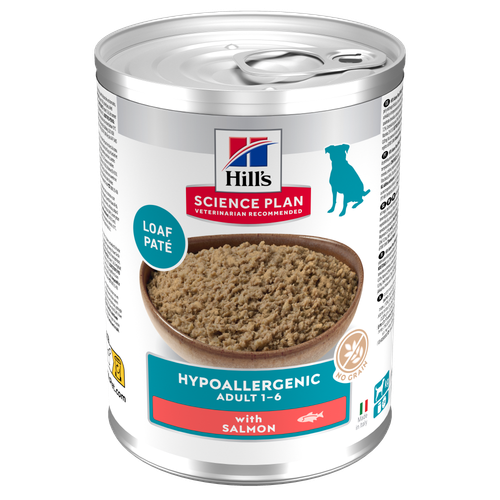
Hill's Science Plan Hypoallergenic Adult Wet Dog Food with Salmon is a complete premium pet food for all adult dogs from 1 year. This savoury tinned loaf is specially formulated for dogs with delicate skin and stomachs. It features a single novel animal protein source and is grain-free.
Hill's Science Plan Mature Adult Multipack Wet Dog Food with Chicken & Beef are complete premium pet foods for mature adult dogs from 7 years. Your dog will love these deliciously smooth and savoury minced loaves, formulated to deliver the appropriate amount of energy to support the needs of adult dogs.
Hill's Science Plan Adult Multipack Wet Dog Food with Chicken, Beef & Turkey are complete premium pet foods for adult dogs from 1 year. Your dog will love these deliciously smooth and savoury minced loaves, formulated for balanced nutrition and overall health.
Related articles
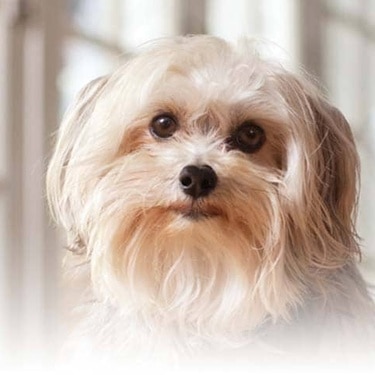
Just like every other pet owner, vets are responsible for giving their pets the best possible nutrition, exercise and care needed to keep them healthy and happy.
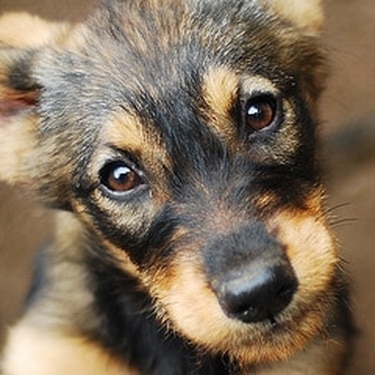
Discover the causes, signs, and treatments of kidney disease in dogs and find methods of supporting your dog's kidney health. Learn more at Hill's Pet UK.

Dog obesity is a significant problem - learn more about helping your dog become trimmer and healthier through improved nutrition.
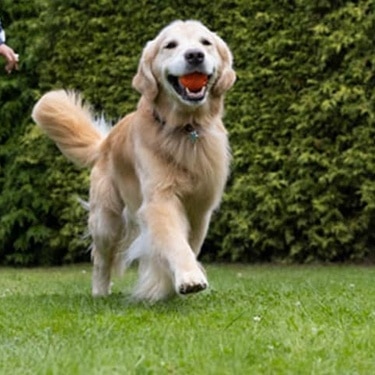
Wondering why your dog is constantly itching? Read on to discover common causes, such as allergies or parasites, and find out how you can help your dog.

Put your dog on a diet without them knowing
Our low calorie formula helps you control your dog's weight. It's packed with high-quality protein for building lean muscles, and made with purposeful ingredients for a flavourful, nutritious meal. Clinically proven antioxidants, Vitamin C+E, help promote a healthy immune system.
Put your dog on a diet without them knowing
Our low calorie formula helps you control your dog's weight. It's packed with high-quality protein for building lean muscles, and made with purposeful ingredients for a flavourful, nutritious meal. Clinically proven antioxidants, Vitamin C+E, help promote a healthy immune system.

